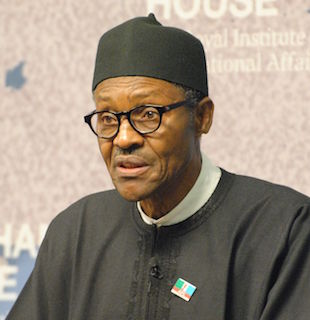NEW YORK | ABUJA – Critics who examined Nigeria’s budget for 2016 are shaking their heads in disbelief at the sight of excess and waste so familiar from previous regimes.
A 37.8 million naira item appears over 369 times, and money for the presidential clinic exceeds that for all 17 of the country’s teaching hospitals combined, according to Oluseun Onigbinde, partner and co-founder of BudgIT, a Nigerian group that campaigns for transparency in public spending.
In some instances, BudgIT found, the same purchase of vehicles, computers and furniture are replicated 24 times, totalling 46.5 billion naira ($234 million), 795 million naira is set aside to update the website of one ministry, while no purpose is assigned to a 10 billion naira provision in the education ministry’s spending plan. A report on the budget appeared in Bloomberg News.
“The key line items you find in the budget are a disservice to the idea that this government has come to represent change,” Onigbinde, whose group first publicly raised the discrepancies, said in a February 9 phone interview. “It would have been better that they took a very good look at every line item and ensured that it was justified.”
“The budget has become an instrument of the corruption process in this country over the last few years,” Jibrin Ibrahim of Abuja-based Centre for Democracy and Development, said in a February 12 phone interview.
“If the Buhari administration doesn’t succeed in stopping that process, then the anti-corruption war will be completely futile.”
President Muhammadu Buhari’s proposed 6.1 trillion naira budget was intended to help revive an economy reeling from the impact of the low price of oil, the source of two-thirds of government revenue. Brent crude, which compares with Nigerian oil grades, was trading at $33.21 in London on Monday (February 15) morning, down 42% this year. Additional spending will be funded through tax revenue and the deficit of 3 trillion naira through borrowing, according to the Finance Ministry.
Now, in a late-breaking development, on February 16, it was announced that the head of the Budget Office has been removed from his position even as newspapers trumpeted the “budget padding scandal.” A replacement has been announced although the scandal is unlikely to disappear anytime soon.
Buhari, 73, came to office promising to curb widespread corruption and end an Islamist militant insurgency ravaging the country’s northeast.
Other analysts see in the blunders signs that the government isn’t in full control.
“It’s ridiculous,” said Clement Nwankwo, executive director of Abuja-based Policy and Legal Advocacy Centre. “It doesn’t seem like the government managed to put together a first budget or has any control of its expenditure framework.” [International Press Syndicate – 16 February 2016]
Photo: Nigeria President Muhammadu Buhari | Credit: Chatham House

